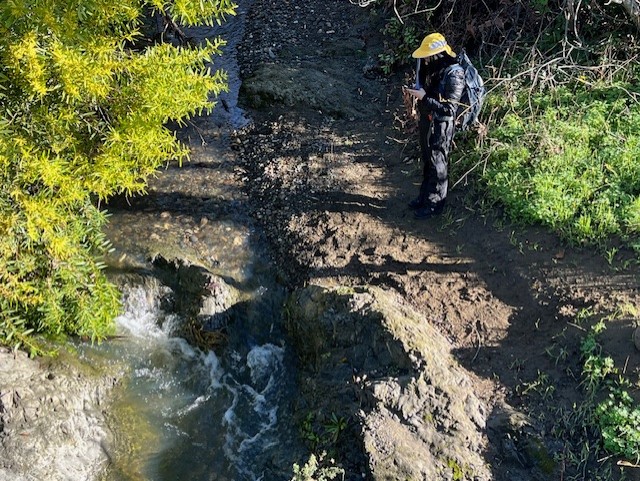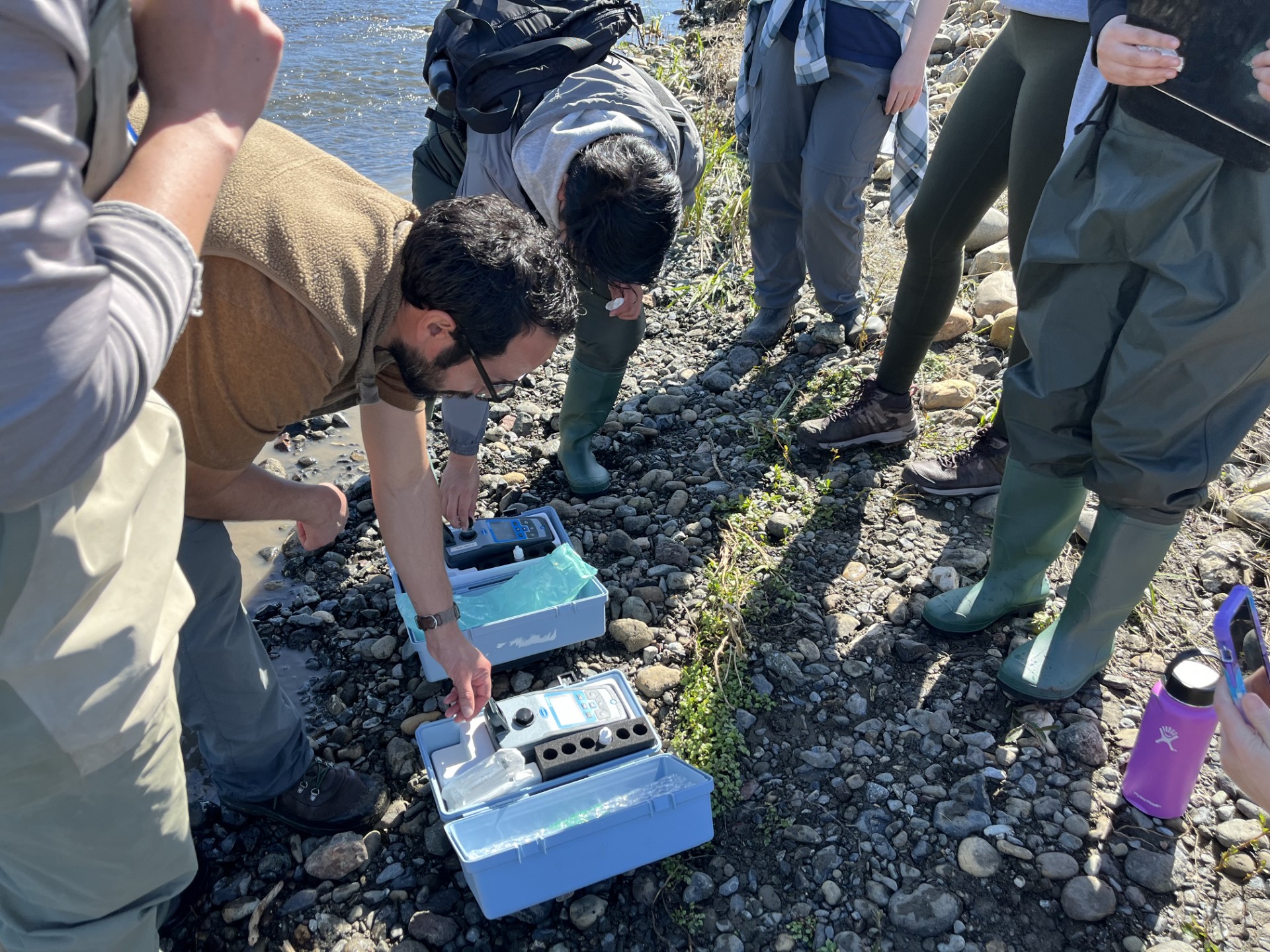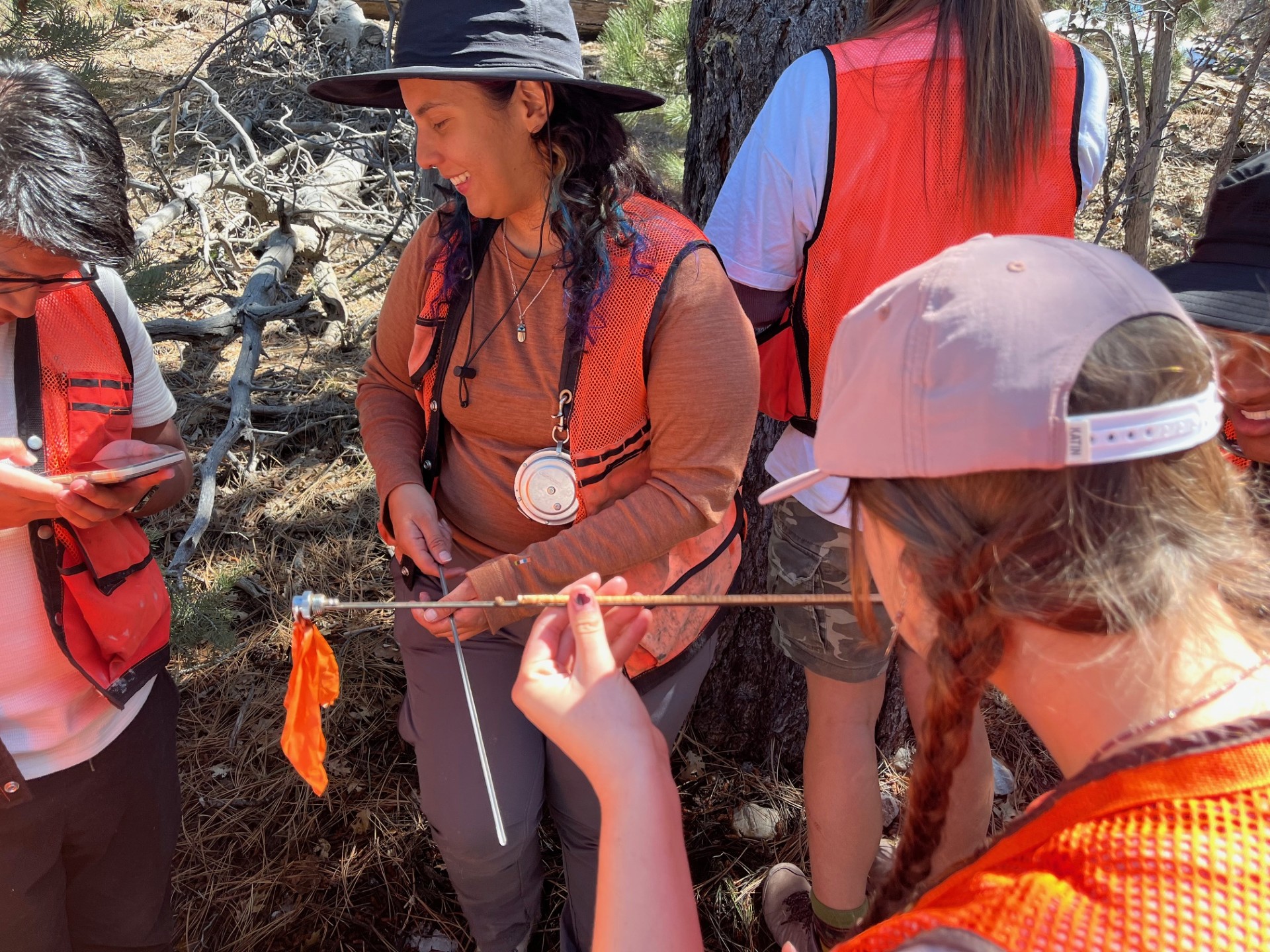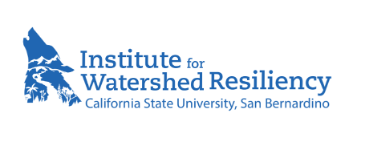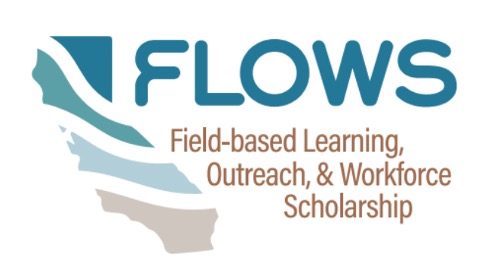
Field-based Learning, Outreach, & Workforce Scholarship (FLOWS)
FLOWS provides CSU Students with geospatial and field based research and service learning that prepares them for diverse career opportunities. FLOWS activities include diverse activities with local, regional and state water resource practitioners, community, and Tribal leadership engagement. The focus for the experiences will be community-ecological water issues and solutions across the coast, mountain, valley and desert regions of California.
The FLOWS program is led by Dr. Jennifer Alford (Director, FLOWS) who serves as the CSUSB Institute for Watershed Resiliency Director, CSU WATER Associate Director for Research and Associate Professor of Environmental Studies. Danielle Bram (Associate Director, FLOWS) serves as the CSUN Director of the Center for Geospatial Science & Technology, Associate Director for the Institute for Social & Behavioral Sciences and the CSUN Coordinator for International Spatial Technology & Research Lab.
2025-2026 FLOWS Fellows Cohort
Our 2025-2026 FLOWS Cohort is in full swing. In January we partnered with Agua Caliente, Native American Land Conservancy and the Audubon Society to learn about water, natural and cultural resources in the Coachella Valley. Activities included geospatial applications to understand environmental landscape changes and restoration, Native law and processes as well as the value of Tribal perspectives in environmental conservation.
Field School #1 Coachella Valley, Salton Sea January 14, 15, & 16 2026
Field School #2 San Bernardino Mountains, Mojave Desert May 18, 19, & 20 2026
For questions, email Dr. Jennifer Alford at jennifer.alford@csusb.edu and put FLOWS in the email subject.
Learning Community Cohorts
FLOWS fellows will participate in collaborative activities with fellow FLOWS peers, instructors and community members, before, during and after field school experiences. Campus cohorts will be tasked with bi-weekly assignments prior to and after each field school experiences so that they can explore the dynamic and complex water landscapes utilizing interdisciplinary perspectives and applications. FLOWS fellows have a unique opportunity to embrace a variety of learning and professional techniques from geospatial technology to historical archives, coupled with traditional and innovative field assessment approaches.
Learning Activities & Applications
- Data collection and analysis.
- Each campus cohort will develop water landscape profiles of their respective communities that will be shared with FLOWS program participants and the greater campus community.
- Applied geospatial tools workshop attendance.
- Geospatial applications of field data.
- Developing educational materials about FLOWS activities.
- Meeting resource practitioners to learn about programs, projects and career opportunities.
- Engage with Tribal communities or organizations working with Tribal communities to explore Tribal perspectives of water issues.
- Developing a final FLOWS program ArcGIS Storymap to highlight learning and engagement activities. Information will be shared across CSUs, agencies, nonprofits and communities to promote FLOWS funding and recruitment efforts.
Skill Sets Developed
- The ability to work in individual and group settings to explore complex human-environmental relationships about water resources across diverse landscapes.
- Gain experience collecting and disseminating data into an educational format to be shared with diverse audiences.
- Participate in opportunities to explore data collection best management practices, methodologies and current applications.
- Learn to understand and apply geospatial applications to see how various phenomena change across a hydrological landscape.
- Gain appreciation for diverse perspectives about water resource issues including perspectives of those representing Tribal and disadvantaged communities.
Student Compensation & Resource Support
- Accommodations during field school activities.
- Use of program field gear and equipment.
2024-2025 Field School Highlights
FLOWS second year was a huge success. Students from three CSU campuses participated in field and community based experiential learning experiences at the Santa Monica Mountains and the San Bernardino National Forest. Learning partnerships included Heal the Bay, Santa Monica Conservancy, CalFire, Mojave Water Agency and community members who supported FLOWS activities.
FLOWS Fellows developed ArcGIS StoryMaps that highlighted their experiences.
CalFire San Bernardino Mountains
Santa Monica Mountains Heal the Bay
2023-2024 Field School Highlights
In our first year of the FLOWS program, student explored various water landscape experiences from Morro Bay along the central coast to the alpine forest of Big Bear.
FLOWS is implemented through diverse scholarship and workforce development activities that link classroom learning with real-world applications. During the 2023-2204 program year, we hosted a very successful program that supported 9 students from various regions of California who engaged in learning, service and research from the Central Coast to the Inland Empire. To explore the impact FLOWS has from the perspective of the 2023-2024 FLOWS Fellows cohort, we welcome you to visit the 2023-2024 FLOWS Fellows Storymap.

FLOWS Fellows learning from Dr. James Fenelon,
Director CSUSB Center for Indigenous Peoples Studies
